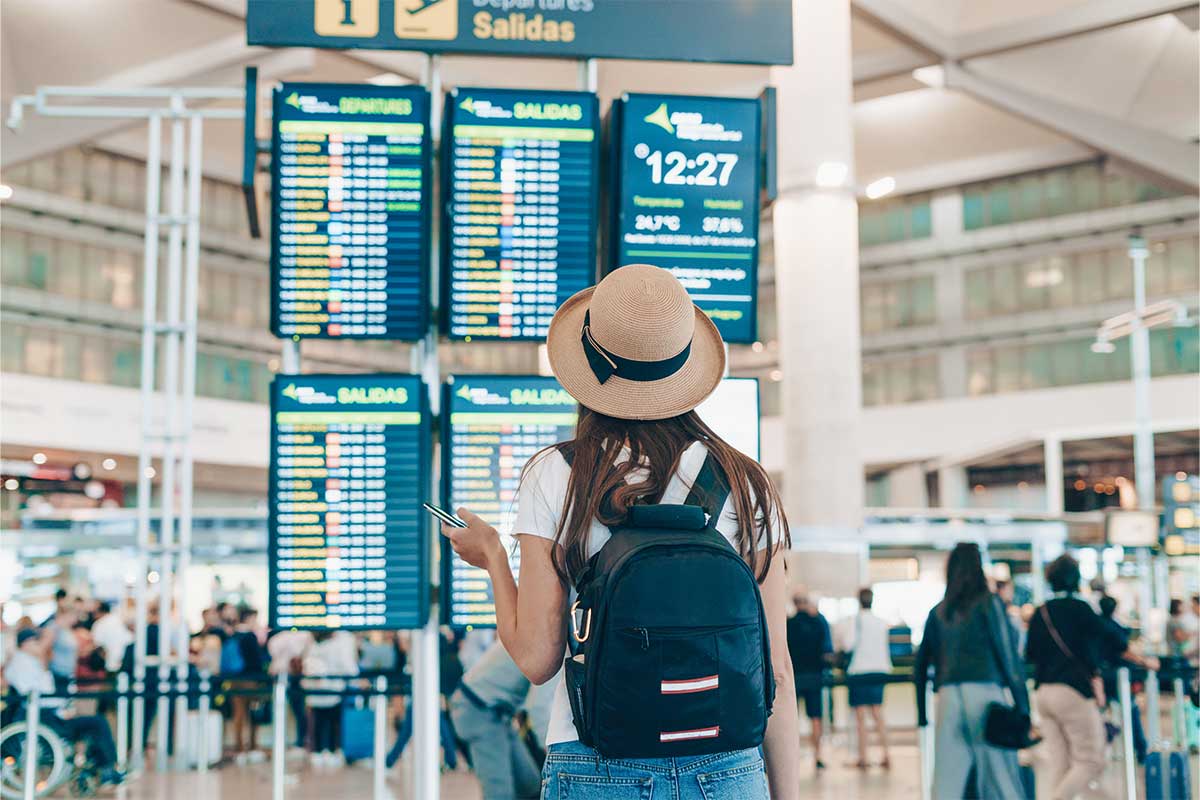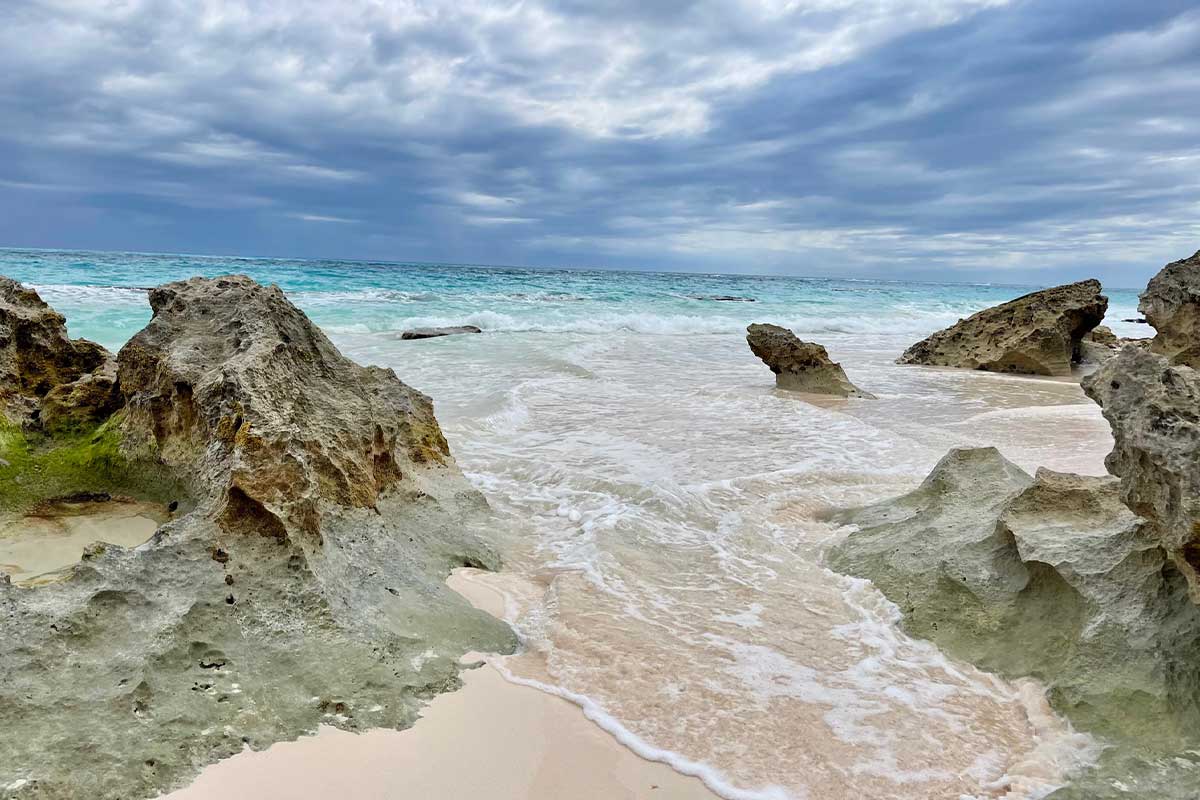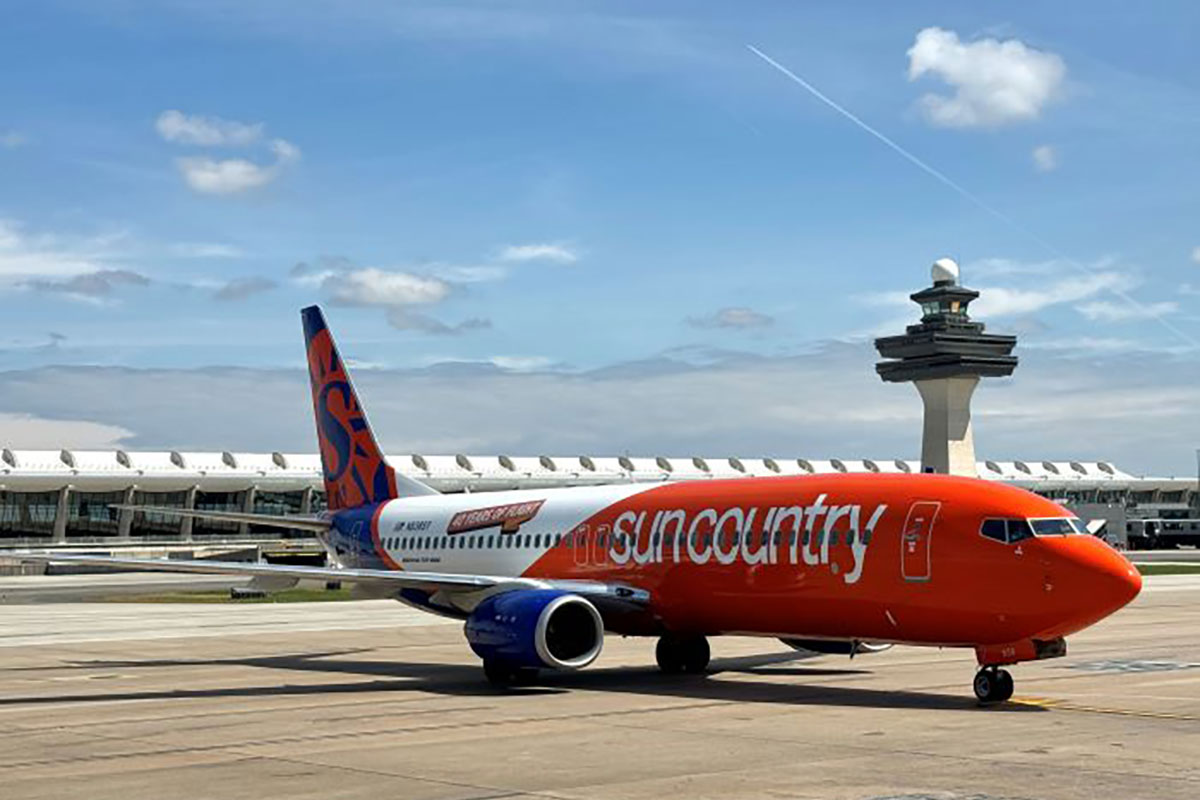Whether you’re looking to take a girls’ trip, have a couple’s getaway, pack up the family, or partake in your next solo adventure, summer is a great time for travel — but you may not be looking to spend your entire savings. Just because you’re on vacation, doesn’t mean you have to break the bank, though it’s certainly worth it to treat yourself.
There are deals and budgeting tricks all around, whether you’re driving on the open road or catching a quick flight. Most of these tips seem like common sense, but there’s some nontraditional advice out there — if you’re truly committed, you might even end up sleeping in your own personal camper van.
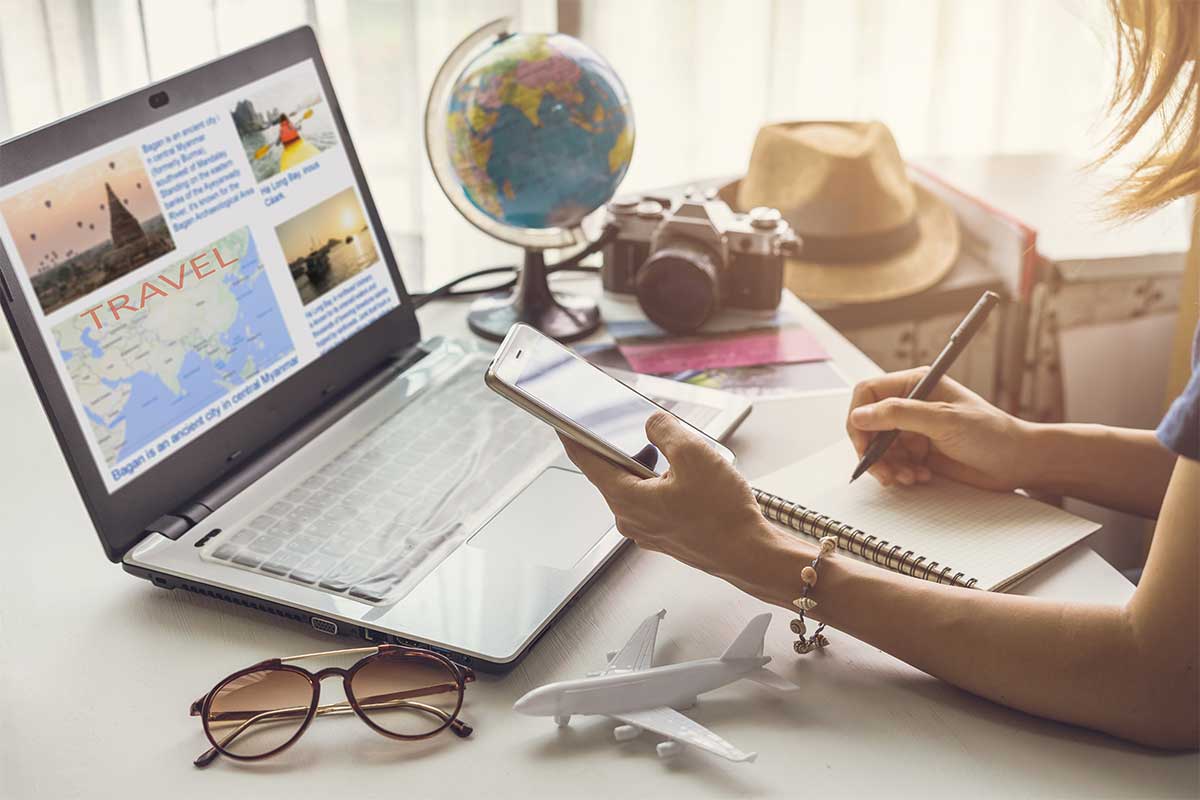
How to Start
Know Before You Go
Perhaps the most important part of traveling on a budget is doing research on your destination before spending your hard-earned money on transportation, lodging, and activities. That being said, you might not want a full-blown itinerary. Try remaining flexible in your trip, and see what experiences can come to you.
Get the Most Bang for Your Buck
If you don’t have a particular place in mind, take a look at what’s the most affordable before actually choosing a final spot, rather than thinking of a destination and then booking your travel.
“You’ve just got to find those little spots that are less populated and less traveled to in order to get better pricing,” says Scott Carrozza, owner of travel agency First Class Travel.
Travel During the Off Season
While everyone loves to be out and about during these warmer months, you might find that certain places are bustling this time of year — and with popularity comes higher prices.
“There’s some [locations] that are in this country that are just very overpriced. In order to get a good deal, you have to try to travel during that off-season time,” says Carrozza.
Use Credit Cards and Loyalty Programs
It’s never too late to start and prepare for a more grand stay down the line. Using a credit card through an airline, for example, can earn you miles — and major providers might offer promotions. Flying one airline consistently and using their offered loyalty program is another way to build up your miles and get the deals.
Travel Agencies Aren’t Dead
Not only can travel agencies save you the stress of planning a trip yourself, but their expertise can come in handy when it comes to booking airfare, hotels, and more. “I’m kind of a consultant and personal assistant for my travelers. So, I’m with them, and I could do anything for them 24 hours a day. If they have a problem at an airport, and they’re stuck in a line that’s 100 people long, they can give me a call and I can rebook them and get it done in less than 10 minutes. Everything is quick, efficient. Fees are very minimal,” Carrozza says. He also recommends travel insurance, particularly for overseas travel.
Aside from being in the know, Carrozza notes that travel agents offer a more personal service, based on travelers’ personal experience, rather than websites like Expedia that are pretty impersonal.

How to Get There
Find Cheap Flights
If you do decide to take a short plane ride, look for flights in the middle of the week and during off-times (time for the red eye). Search engines like Google Flights can be helpful to compare airfare — select your dates and destination, and Google will provide you with a list of airlines and times. You can even set an alert to track the prices.
“A big common mistake lately is purchasing Basic Economy fares. People think they get a great airfare … but they’re not looking at the actual restrictions,” Carrozza says, noting that with checked baggage and potential cancellation fees, a slightly more expensive flight can be a better deal, since other aspects of travel are included in the price.
Embrace Public Transportation
When traveling without your own car, rentals can be an expensive route. Instead, see if where you’re headed has buses, a subway system, or walkable paths.
Travel Overnight
If you can do so safely, it might be better to drive through the night and get the most out of your gas mileage — and miss the stop-and-go traffic. Head out late and cruise along the open road.
How to Eat and Drink
Pack Your Own Snacks and Drinks
It might seem obvious, but a cooler full of products from home or the grocery store can save you from stopping at every McDonald’s along the way. While not a replacement for full meals, you can satisfy some of your hunger. If you stay at a spot with a kitchen, eat in instead of dining out every night by buying some groceries. There might be a nearby market where you can find local specialties.
Don’t Eat at a Tourist Destination
It’s nice to see if the area’s staples are worth the hype, but you might encounter higher prices. Try walking or driving a few blocks to see if there’s something intriguing outside of the typical popular radius.
Go Big at Lunch
Lunchtime is usually less expensive than dinner at restaurants, so you can use that time to catch the specials and the deals. If you want to go big at dinner, you can always look to find cheaper spots throughout the day where you can save up to indulge later on.
Take Advantage of the Hotel Buffet
Staying somewhere with complimentary breakfast — here’s looking at you, premade breakfast sausage and cereal — can help you save when you’re out and about. Don’t open the minibar; instead try for a happy hour at a nearby restaurant or visit a convenience store.
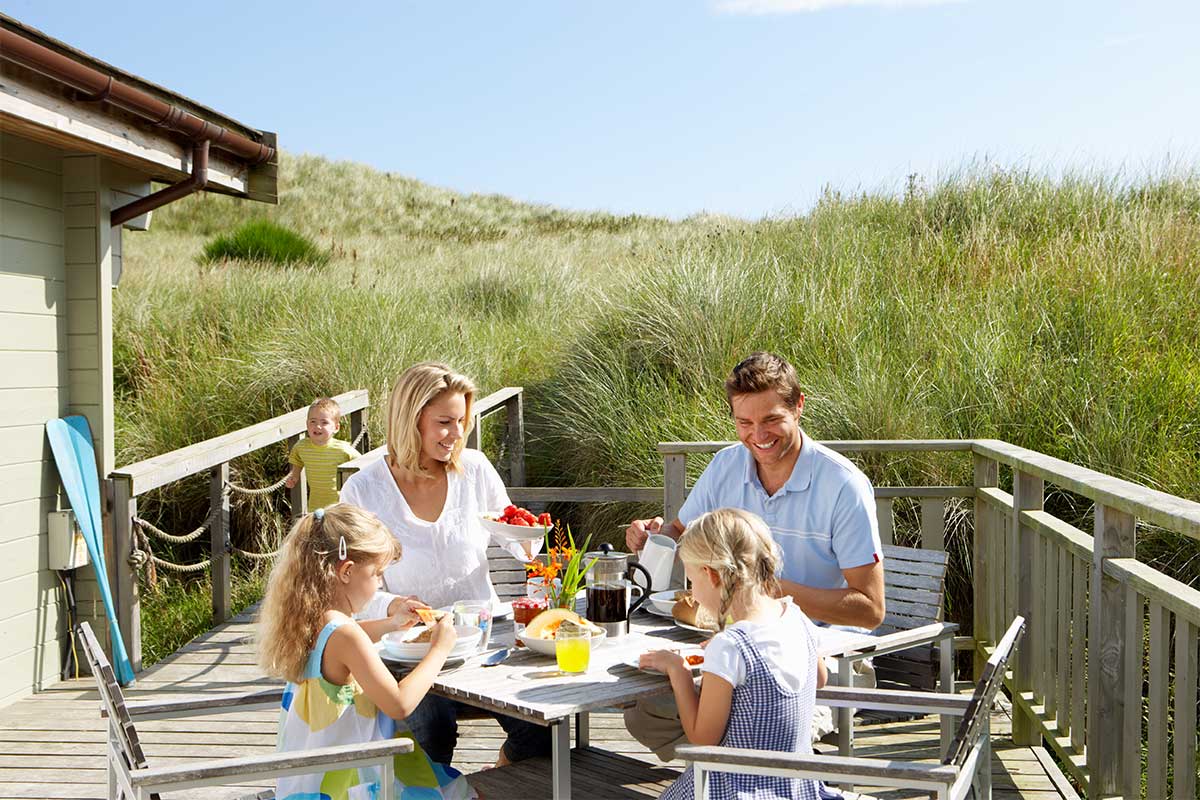
Where to Stay
Try Roughing It, by Sleeping in Your Car
Yes, really. While you might think that’s a bit out of the box, for a budget-minded traveler, there are ways to safely use your car — or a rented camper van — as your lodging. If you’re road tripping out to the wilderness, federal sites managed by the Bureau of Land Management or the U.S. Forest Service, as well as some national parks, have spaces to park your ride and sleep for the night.
Just be sure to check if it’s allowed first. Google is your friend, and don’t be afraid to ask a park ranger about the rules for a particular site. If you’re en route to a city or more populated area, truck and rest stops, and even Walmart parking lots (with no overnight parking regulations) are also good pit stops. If you plan to sleep at a Walmart, be sure to let the store’s manager know.
Try to Earn Your Keep
If you want to stay somewhere for an extended period of time, there might be opportunities for you to stay for free and stay safe while doing so. While couchsurfing is a little iffy, reputable spots, like national public lands and campsites, offer complimentary housing in exchange for volunteering.
At Cape Hatteras National Seashore on Ocracoke Island, for example, you can volunteer at the Outer Banks-based lighthouse and live on the island for free. More temporary opportunities are available elsewhere thanks to federal agencies — though it might be tough to balance the volunteering with an additional job based on your financial situation. You can visit volunteer.gov to find something that may be a fit for you.
Check Out All of Your Options
It’s often assumed that AirBnBs are cheaper than hotels — but with cleaning fees and increasing prices, this isn’t the case at every destination. You can also reach out to local rental agencies to see if their spots might be worth the cash. Google is, once again, your friend, and this is where travel agents may come in handy.
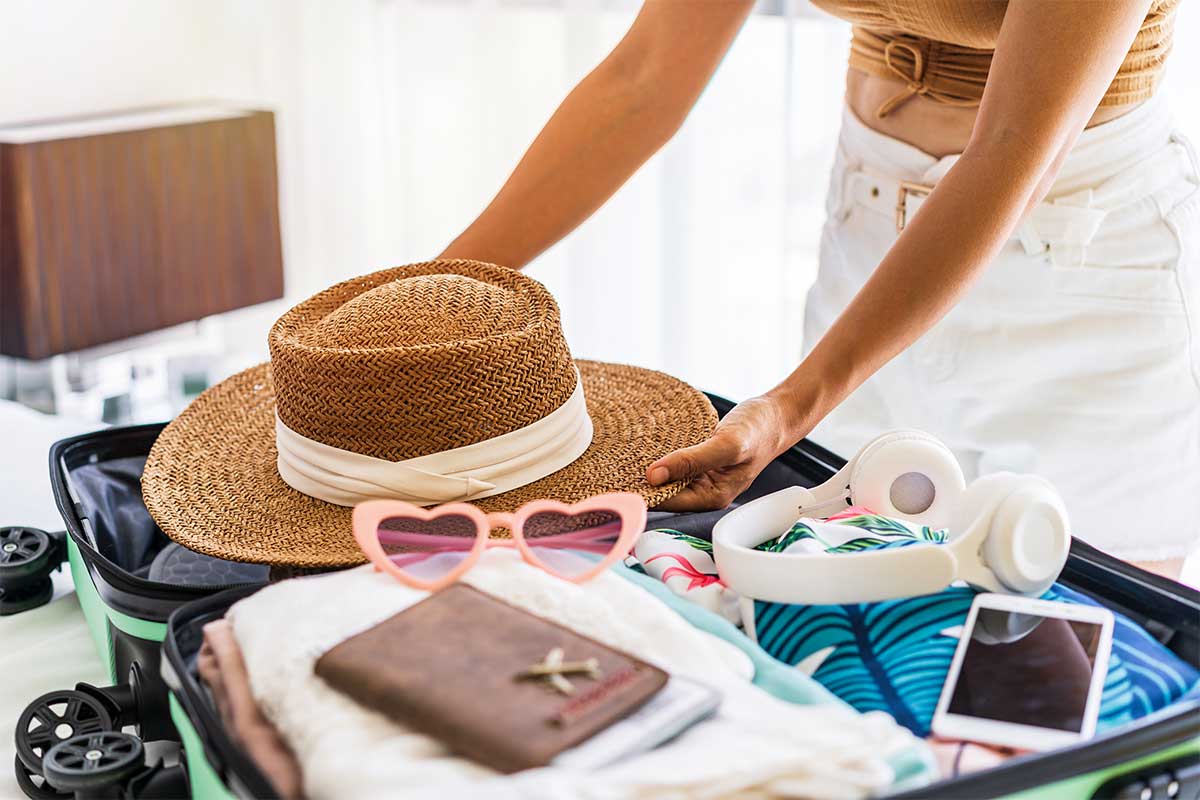
What to Bring
Pack Light
There might be some souvenirs you want to bring back from your journey, and who wants to stress about how much they can fit in their suitcase? When you just take what you need, you won’t need to worry about picking up an extra phone charger and wasting your money on an item you already own. In terms of clothes, try to bring warm items like sweatshirts or pants just in case the weather gets chilly, but also recognize that you probably don’t need 16 shirts for a week-long trip.
Travel with Reusables
Bring your emotional-support water bottle with you on the open road. If you’re taking a quick flight, make sure it’s empty through security, and you can fill it up before you get to your gate. There’s a number of other reusable products out there — coffee cups, straws, utensils — so you don’t have to be without something that might come in handy and spend unnecessary funds.
What to Do
See What’s Free
If you’re visiting a city or more densely populated travel destination, see if they offer free walking tours. You’ll stretch your legs after being in the car and see the sights up close. Museums are another great way to experience the culture of a place you’re staying, and parks are always a good idea.
Talk to the Locals
“You need to kind of go out there and communicate with people to get a feel for what will be the better value, what would be the best place to go in the area that you are in,” Carrozza says. Whether it’s for food or activities, residents are your best bet.
This story originally ran in our June issue. For more stories like this, subscribe to our monthly magazine.

